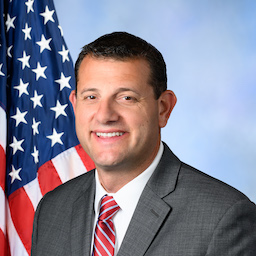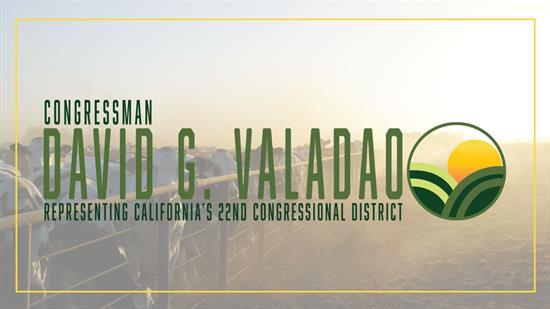- Home
- About
-
Services
- Art Competition
- Community Project Funding Map
- Congressional App Contest
- Congressional Certificate
- Event Request
- Flag Request
- Grants
- Grant Letters of Support
- Help with a Federal Agency
- Inauguration
- Internships
- Kids Page
- Meeting Request
- Service Academy Nominations
- Tour Requests
- Vietnam Veteran Commemoration
- Government Shutdown FAQ
- Issues
- Media
- Contact

Press Releases
Congressman Valadao Joins Bipartisan Effort to Address Court Backlog in California
Washington,
September 18, 2024
|
Faith Mabry
Congressman David G. Valadao (CA-22) joined Congressman Darrell Issa (CA-48) to introduce the Judicial Understaffing Delays Getting Emergencies Solved (JUDGES) Act.
WASHINGTON – Congressman David G. Valadao (CA-22) joined Congressman Darrell Issa (CA-48) to introduce the Judicial Understaffing Delays Getting Emergencies Solved (JUDGES) Act. Currently, federal district courts across the country are suffering from multi-year backlogs due to judicial staffing shortages. The JUDGES Act seeks to reduce this backlog by creating 63 new permanent district court judgeships throughout the country. “Our federal courts have an unsustainable, multi-year case backlog because of judicial staffing shortages, which has become a huge source of frustration for law enforcement throughout the Central Valley,” said Congressman Valadao. “The JUDGES Act would add desperately needed judgeships to California’s Eastern District Court, alleviating some of the unsustainable workload on current judges and making the justice system more responsive to current needs. It’s past time for Congress to act on this issue and I’m proud to support this bipartisan effort.” “A severe shortage of judges eventually delivers an array of complications to our courts – and over time, the problem only grows worse until justice is routinely delayed and therefore denied,” said Congressman Issa. “The JUDGES Act will deliver immediate relief, a longer-term solution, and a sustainable plan that will prevent this crisis from happening again.” Background: California’s Eastern District Court, which encompasses the entire Central Valley, would receive an additional four judgeships if the JUDGES Act became law. As of June 30, 2024, America’s federal district courts currently have 724,209 pending cases, 554 weighted filings per judgeship. Congress last authorized new district court judgeships more than two decades ago, despite the increase in our country’s population and a corresponding rise in federal case filings. In 2023, the Judicial Conference of the United States, a nonpartisan policy-making body for federal courts headed by Chief Justice John Roberts, recommended that Congress create 66 new district court judgeships. The JUDGES Act of 2024 seeks to implement these recommendations during multiple future presidential administrations while adding new transparency and best practice requirements. The JUDGES Act will:
### |

